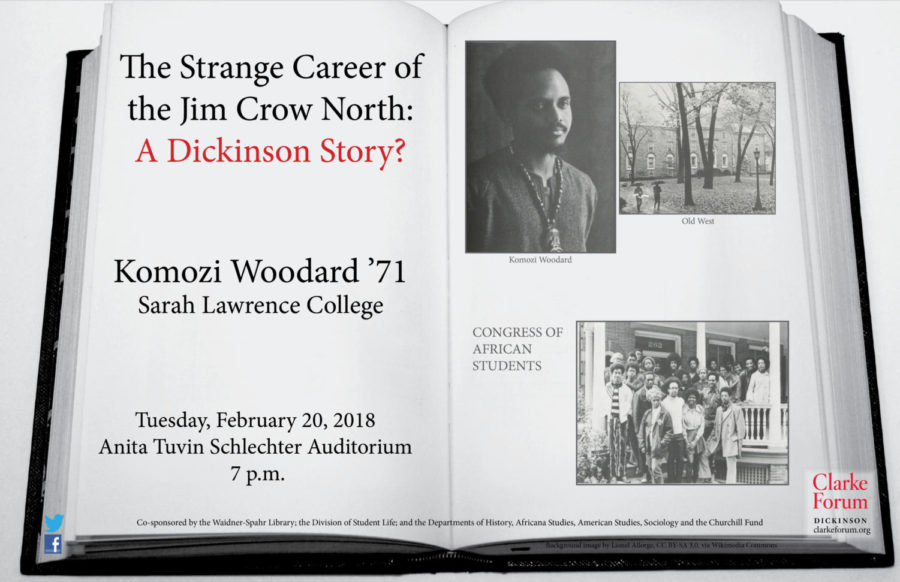Alumnus Highlights Effects of Jim Crow Law in the North
Founding member of the Congress for African Students at Dickinson College, now the Black Student Union, Komozi Woodard ’71 claimed at a Clarke Forum lecture that “one of the problems of fighting racism in the north is people saying it’s not there.” The lecture also explored the absence of black women activists in history and the future of black activism.
In his lecture on Tuesday, Feb. 20, Woodard claimed that “to say Jim Crow occurred in the south is to miss what happened in the north.” For example, the Congress for African Students at Dickinson organized black resistance movements and joined with other student organizations to produce newsletters that would document attacks against black students across the state. After the assassination of Martin Luther King Jr. and Robert Kennedy, many historians claimed that the black movement had died. However, Woodard claimed that this was far from the truth.
According to Woodard, women are often the ones who are erased from the history of black activism. One such example is Gloria Richardson, who was an “unruly” activist who stood up against the National Guard during protests and was supposed to speak at the 1963 March on Washington if she had not been told to leave because of a fake bomb threat. To fight this, Woodard became involved in the Black Women United Front, an organization that aims to help defend “sisters” who have been victimized by violent acts of rape. According to Woodard, however, these women were not helpless. Many of them were involved participants of social movements and, according to Woodard, “taught me a lot of tactics.”
Woodard theorized that certain scholars might trivialize black activism developments because the aims of the Black Liberation Movement might have seemed unattainable. Throughout his life, high school and college students have been an integral part of influencing politics, which is why Woodward thinks that activists have the ability to dismantle the “Trump tyranny of racial oppression” and to make a difference. During his lecture, he urged the audience to use their education to help communities because “if we don’t do what we have to do, your children have to do it.” In what he calls an intellectual fight, “it wasn’t our ignorance that was holding us back, it was white domination.”
Woodard’s words on the power of youth involvement was generally well-received. Kayleigh Rhatigan ’19 claimed that “it’s important for people to see accurate representations of history and to see themselves be represented.”
Makeda White ’20 said she appreciated the discussion of the absence of black women in history. Teryon Lowery ’20 said, “I really enjoyed seeing a scholar from Newark especially his experiences as a college student in the 60’s and the work that he has done.”
The effects of Jim Crow are still relevant today, but Woodard still has optimism in the idea that speaking out against racial oppression will help the world move towards a more promising future.






